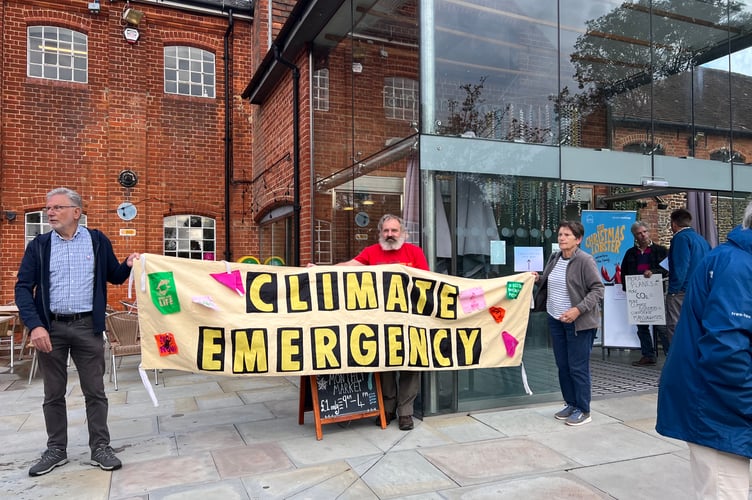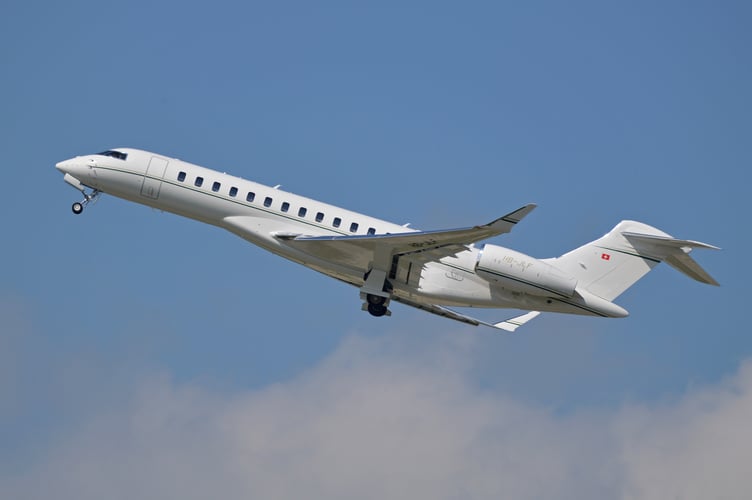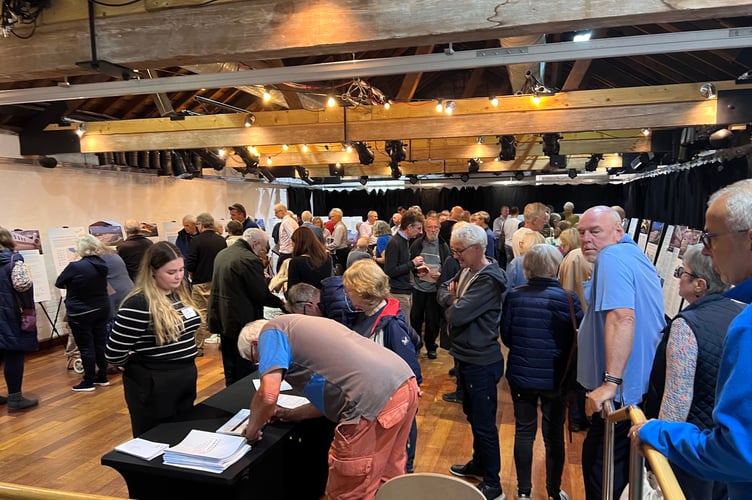Farnham Maltings was packed out last Thursday for a drop-in consultation session on Farnborough Airport’s controversial plans to double weekend private jet flights.
And of the dozens of people interviewed by the Herald at the event, the message was unanimous – the proposal to raise Farnborough’s flight limit from 50,000 to 70,000 flights per year and more than double weekend flights from 8,900 to 18,900 must be cancelled.
Speaking on the eve of the Farnham consultation drop-in, airport CEO Simon Geere said initial reactions to the airport’s expansion plans have been “mixed”.
Judging by the torrent of opposition at the Maltings, that assessment is generous.

Mr Geere has been on the defensive all week, also telling the BBC that plans to raise Farnborough’s flight limit will create more than 1,000 jobs and add more than £200 million to the economy.
Countering the claim most flights from Farnborough are for leisure, he added: “Most users at Farnborough are trips of very high economic consequence, likely to be essential in nature.”
And in an exclusive interview to be printed in full in next week’s Herald, Mr Geere also highlighted that the airport’s payroll was around £14 million last year.
This represents a substantial economic injection into the local community, he said, with a “knock-on beneficial effect” for local businesses.

Add to that the payrolls of other airport-based firms such as Gulfstream, and the airport creates “huge economic wealth locally”, said Mr Geere.
However, while acknowledging the economic benefits, the hundreds of people attending last week’s Maltings consultation event put more weight on the environmental impacts and the prospect of increased low-flying jets crossing their back gardens at weekends.
One Crookham resident even claimed the roof of his home is being damaged by the vortex of Farnborough’s ever-increasing low-flying jets.
Ten key comments from attendees of the Maltings' drop-in
- Huw Radley (Churt): "What’s going on? Why do they need more aircraft? They have sanctions for a certain number now but they’re seeking larger and more. Why? Is there something we don’t know about? Is this going to develop into a regional airport?"
- Jacky Paynter (72, from Fleet): "Given the global crisis we have, why are they promoting jets flying around that are the worst polluters of any form of aircraft?"
- Linda Gill (70, of Hartley Wintney): "It just seems totally contrary to the overall global trends that we are trying to cut down on emissions, cut down on unnecessary travel and cut down on waste."
- Bill Main (79, from Ewshot and Crondall): "They’ve got a business that works now and obviously makes money. Any business is going to try to increase its overall income to make more money. So when is it all going to end?"
- Joanne (38, from Farnham): "I don’t see any benefits to us, as a town or as a business."
- Chris (70, from Church Crookham): "I think it’s the pollution aspect that really worries me about the area."
- Sarah-Jane Jenkins (Churt): "Macquarie, who own the airport, keep on saying they have principles in place. They keep on saying they act honestly and fairly. Is that to themselves or to the community?"
- Charles Wills (Churt): "As far as I’m concerned it’s a load of PR rubbish with a load of incorrect information on it. It’s just a way of appeasing the public and hopefully they will hear from the public and be told we don’t want your expansion."
- Huw Radley (Churt): "The fact is there’s about 32,500 flights at the moment of which about 50 per cent come in from the south, landing, coming directly over us in Churt, directly over my back garden and my house. At peak times that’s every few minutes. They fly at just over 3,000ft, the noise is incredible."
- Councillor Julia Crossley (Rushmoor Borough Council): "The poor people of Farnham, Tilford, Churt, Lytchett Church and Crookham, have had a massive impact on their quality of life due to changes in airspace causing noise pollution."
Climate activists also raised banners reading ‘Flying to Extinction’, ‘Climate Emergency’ and ‘Plane Crazy’ outside the Maltings, and many members of the public shared the view that expanding private jet flights, known for their high greenhouse gas emissions, is incompatible with addressing the climate crisis.
Mr Geere asserted Farnborough aims to achieve net-zero emissions by 2030 and hopes to pioneer the use of sustainable aviation fuel. Critics, however, question whether these efforts can offset the substantial increase in flights and associated emissions.
The airport’s plans are set to be submitted as a formal planning application in November, and Rushmoor Borough Council will be asked to weigh these competing interests and make a decision that will shape the future of the historic aviation hub.
Pick up a copy of this week's Herald for two pages of reaction to Farnborough's plans, including from Farnham Residents and Alton Climate Network, and a vox-pop of attendees at the Maltings' drop-in.




